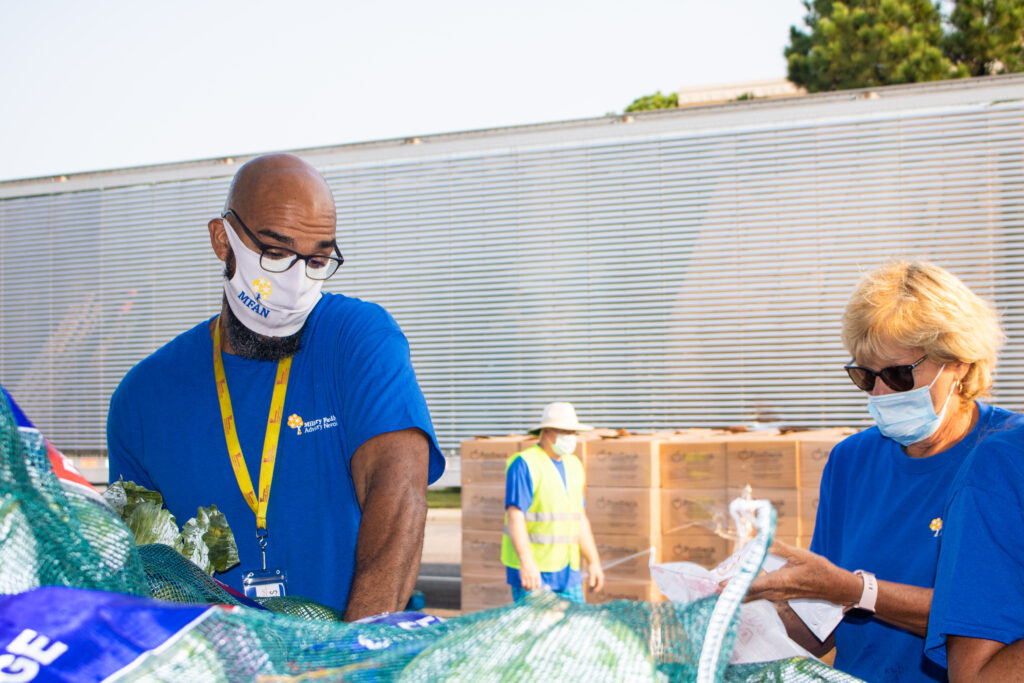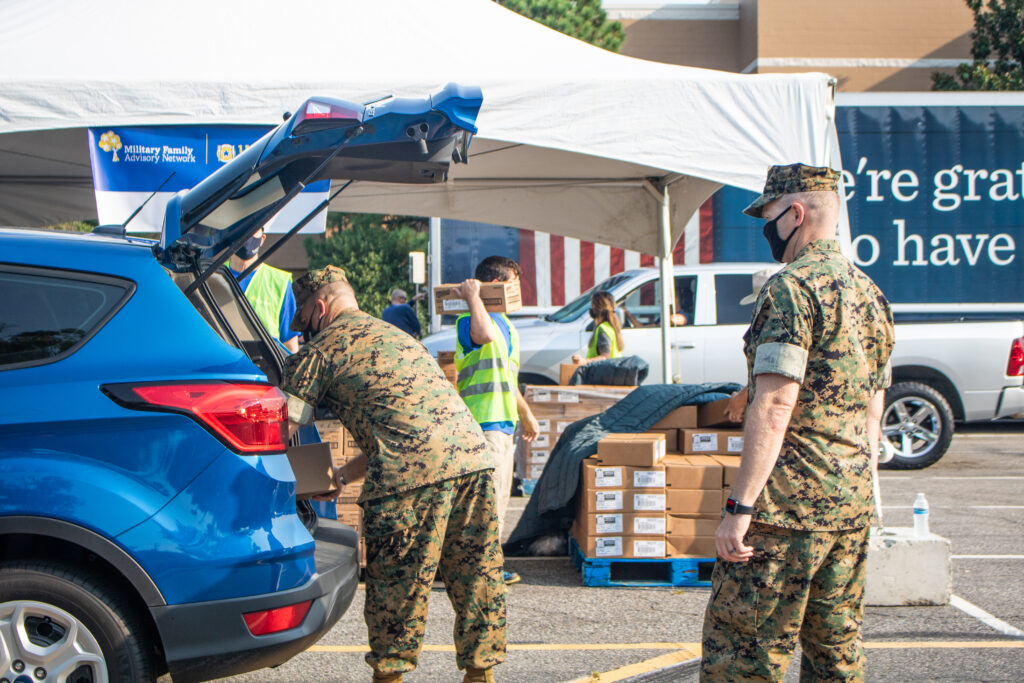The need for food is universal. Access should be too.
October 15, 2022The opinions expressed in this op-ed are those of the author. This article first appeared in The Virginian-Pilot, Virginia’s largest daily newspaper which serves five cities of South Hampton Roads as well as communities across southeast Virginia and northeast North Carolina.

According to the U.S. Department of Agriculture, food insecurity nationwide is at approximately 10%. In turn, the Department of Defense reports that 24% of active-duty service members have experienced food insecurity in the last year.
The Military Family Advisory Network (MFAN) has sought to understand food insecurity in the military community and build collaborative solutions since 2017. When we share the data points around food insecurity in the military community, people are incredulous. How can those who sacrifice so much struggle with such a basic need? How can our nation’s armed forces focus on their mission to defend our country when some may not know where their family’s next meal will come from?
The issue of food insecurity in the military community is complex and, as recognized last fall by the Department of Defense, a readiness and national security risk. The good news is that through collaboration, we can change this for the military community and all Americans. And we have more momentum than ever on this solvable problem.
At the White House Conference on Hunger, Nutrition, and Health on September 28, we began the crucial steps towards lasting solutions.
The first Conference on Hunger, Nutrition, and Health in 1969 led to concrete actions that continue to help millions of Americans every day. More than 50 years ago, leaders gathered to set the groundwork for transformational programs like expanded school meals and the Special Supplemental Nutrition Program for Women, Infants and Children. These remain critical services that many rely on, but they are not without flaws. For example, many military families are ineligible for the Supplemental Nutrition Assistance Program because of how allowances are factored as income.
At this year’s conference, we took an honest look at what we have learned — especially through the pandemic — to develop a launchpad to solutions that will last. We must harness this momentum to create and strengthen equity so that all Americans have access to healthy, nutritious food.
Thanks to the generosity of our partners, MFAN has distributed nearly 1.3 million meals to more than 9,000 households in less than two years. During that time, our researchers interviewed more than 300 food insecure families to understand the causal factors that lead to food insecurity.
We have learned of stigma, challenges caused by frequent moves, the difficulties of relying on one income to sustain a household, struggles of providing for a growing family, and lack of child care, among other obstacles. We have seen how the pandemic has made challenges worse, and the unfortunate reality that many would rather suffer quietly than seek support.

An active-duty Army soldier said the following after attending an MFAN food distribution event in 2021, “Combined with current events and the stresses of military life, the food and the friendly faces made our day. It is a relief to know we won’t have to go hungry. Thank you all.”
The reality is, while nuanced for military families, many of these challenges are universal. So must be the solutions.
Now that we have acknowledged the challenge and are armed with data, we can be proactive instead of reactive. We can blend the resources, capability, and scalability of the public and private sectors to work smarter, not harder and create solutions that cut through red tape. We can level the playing field. Families — military and civilian — are counting on us to think big.
Now’s the time to make the changes we want to see for all families.
To learn more and to help military and veteran families facing food insecurity, visit combatmilitaryhunger.org.
About the Author
